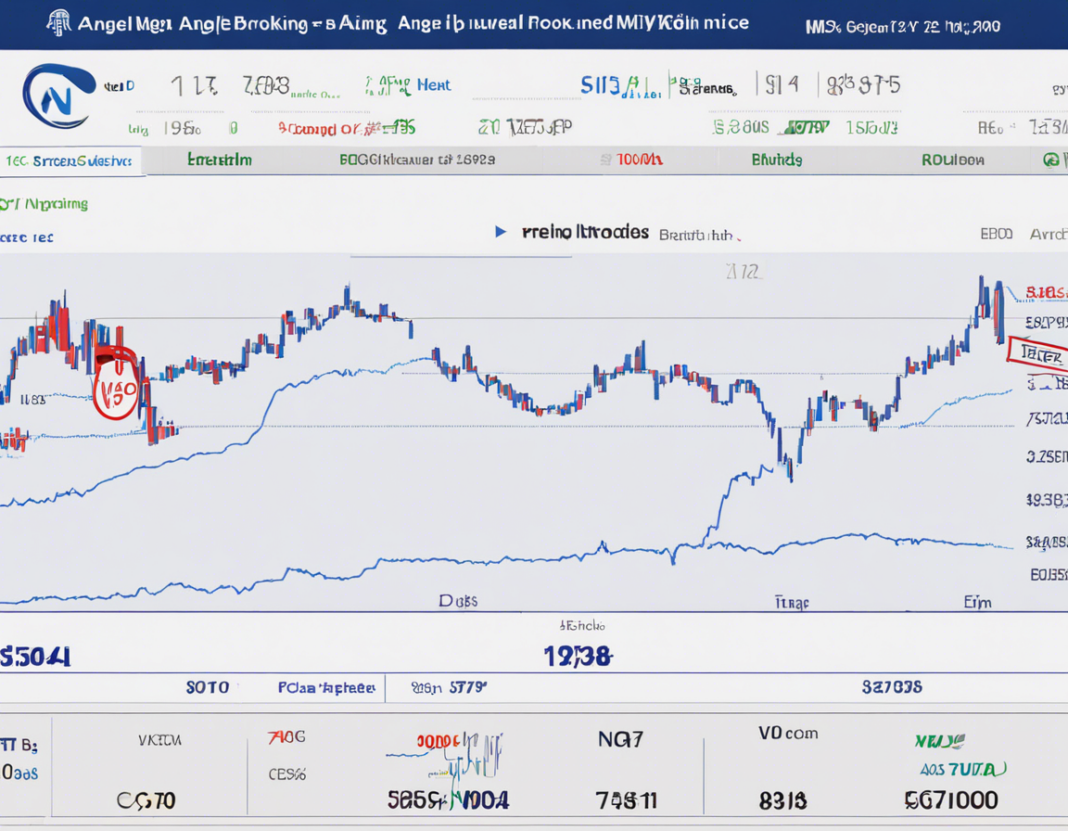Trading in the stock market can be a complex and challenging endeavor, but with the right knowledge and understanding of market trends, investors can make informed decisions to maximize their returns. One stock that has garnered significant attention in recent times is Angel Broking, a leading full-service retail broking house in India. In this expert analysis, we will delve into the share price trends of Angel Broking to provide insights for potential investors and traders.
Understanding Angel Broking
Before analyzing the share price trends, it is essential to have a brief understanding of the company itself. Angel Broking Limited is a Mumbai-based stock brokerage firm founded in 1987. The company offers various financial products and services such as stock and commodity trading, investment advisory, portfolio management services, and more. With a widespread presence across India and a large client base, Angel Broking has become a prominent name in the brokerage industry.
Historical Performance
To assess the share price trends of Angel Broking, one must examine the historical performance of the stock. Since its listing on the stock exchange, the company’s share price has witnessed fluctuations influenced by various factors such as market conditions, regulatory changes, company performance, and industry trends.
Key Points to Consider:
– The IPO of Angel Broking was launched in September 2020 at a price of ₹306 per share.
– Following the listing, the share price experienced volatility in the initial months, which is common for newly listed stocks.
– The stock price saw a significant surge in the latter part of 2020, reaching its all-time high.
Market Analysis
Analysts often use technical analysis to understand the share price trends of a stock. This involves studying historical price and volume data to predict future price movements. In the case of Angel Broking, technical indicators such as moving averages, relative strength index (RSI), and Bollinger Bands can provide valuable insights.
Moving Averages: Moving averages help smoothen out price data to identify trends over a specified period. Analysts commonly use the 50-day and 200-day moving averages to assess short-term and long-term trends in the stock price of Angel Broking.
Relative Strength Index (RSI): RSI is a momentum oscillator that measures the speed and change of price movements. A high RSI value indicates overbought conditions, while a low RSI value suggests oversold conditions. Traders often use RSI to determine entry and exit points in the market.
Bollinger Bands: Bollinger Bands consist of a middle band (SMA) and two outer bands (standard deviations away from the SMA). They help traders identify volatility and potential reversal points in the stock price. Narrowing bands indicate a period of low volatility, while widening bands suggest increased volatility.
Recent Developments
Apart from technical analysis, investors should also consider recent developments and news related to Angel Broking that could impact its share price. This could include quarterly earnings reports, regulatory changes, strategic partnerships, acquisitions, market trends, and macroeconomic factors.
Key Developments:
– Angel Broking reported robust financial results in the last quarter, surpassing market expectations.
– The company announced plans to diversify its product offerings and expand its customer base.
– Regulatory changes in the financial sector could have implications for brokerage firms like Angel Broking.
Investment Outlook
Based on the analysis of share price trends, market dynamics, and recent developments, investors can form an investment outlook for Angel Broking. It is crucial to conduct thorough research, consult with financial advisors, and evaluate one’s risk tolerance before making investment decisions in the stock market.
Factors to Consider:
– Long-term investors may focus on the growth prospects and competitive positioning of Angel Broking in the brokerage industry.
– Short-term traders could capitalize on volatility in the stock price by utilizing technical analysis tools and market insights.
In conclusion, analyzing the share price trends of Angel Broking requires a comprehensive assessment of historical performance, market analysis, recent developments, and investment outlook. By staying informed and vigilant, investors can navigate the stock market with confidence and make well-informed decisions to achieve their financial goals.
Frequently Asked Questions (FAQs)
1. Is Angel Broking a good investment?
Answer: The investment suitability of Angel Broking depends on individual financial goals, risk tolerance, and market conditions. Conduct thorough research and seek advice from financial experts before making investment decisions.
2. What factors influence the share price of Angel Broking?
Answer: The share price of Angel Broking is influenced by factors such as company performance, market trends, regulatory changes, industry dynamics, and macroeconomic conditions.
3. How can investors use technical analysis to assess Angel Broking’s share price trends?
Answer: Investors can utilize technical indicators such as moving averages, RSI, and Bollinger Bands to analyze the share price trends of Angel Broking and make informed investment decisions.
4. What are the long-term growth prospects of Angel Broking?
Answer: Angel Broking has shown strong growth potential in the brokerage industry, with plans for product diversification and customer expansion. Long-term investors may consider these factors in their investment decisions.
5. How can investors stay updated on recent developments related to Angel Broking?
Answer: Investors can stay informed about Angel Broking by monitoring financial news, quarterly earnings reports, regulatory updates, company announcements, and market analysis reports.
6. What are the risks associated with investing in Angel Broking?
Answer: Like any investment, investing in Angel Broking carries risks such as market volatility, regulatory changes, industry competition, economic downturns, and company-specific factors. Investors should assess these risks before investing.
7. What is the historical performance of Angel Broking’s share price since its IPO?
Answer: The share price of Angel Broking has experienced fluctuations since its IPO in September 2020, with periods of volatility followed by growth spurts. Investors can track the historical performance to gain insights into future trends.
8. How does Angel Broking compare to its competitors in the brokerage industry?
Answer: Investors can evaluate Angel Broking’s competitive positioning by comparing its services, market share, customer base, technological capabilities, and growth strategies against its industry peers.
9. What are the key indicators to consider before investing in Angel Broking?
Answer: Key indicators to consider before investing in Angel Broking include financial performance, market trends, regulatory environment, management strength, competitive positioning, and growth prospects.
10. What investment strategies can investors adopt for trading Angel Broking shares?
Answer: Investors can adopt various strategies such as value investing, growth investing, dividend investing, momentum trading, or a combination of these strategies based on their investment objectives and risk tolerance.

